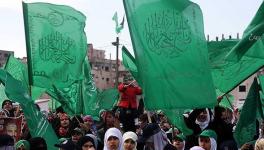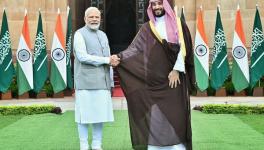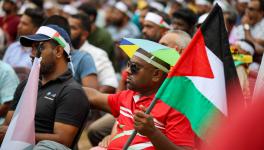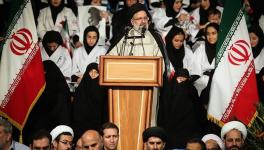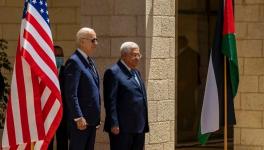Killings in Cairo Weakens Armed Forces Legitimacy
The legitimacy of removal of Mursi from presidency by the armed forces following huge street protests is now becoming weaker by the day.
Two major cases of firing on Muslim Brotherhood supporters have now taken place, one earlier in front of the Republican Guard headquarters and one now in Nasr City. In the latest firings, 72 persons have lost their lives according to Egypt's Ministry of Health, while the Brotherhood sources putting the toll over 200. The firings followed the attempts by the Egyptian security forces to contain the Brotherhood protesters and prevent them crossing over in to other areas from the month-long sit-in at Rabaa Al-Adawiya in Cairo's Nasr City. General Al Sisi had called on Egyptians to give security forces a mandate to combat "violence and terrorism" through public demonstrations last Friday. Following this appeal, huge demonstrations were held in Tahrir Square and in other places. The Mursi supporters had also come out in large numbers demanding the restoration of Mursi. The National Salvation Front and Tamarod (Rebellion) – the two groups who had spearheaded the campaign for the ouster of Mursi – supported Al Sisi’s call. However, others including the April 6th Movement, an important component of the earlier 2011 Tahrir Square upsurge and also the current one against Mursi, opposed Al Sisi’s Friday call, stating that it would only worsen the current political crisis.
"Our armed forces do not need popular delegation to perform its patriotic duties of preserving security and resisting violence with the rule of law without resorting to any arbitrary measures," the group had said.
They also said, "We reaffirm that any measures which would lead to furthering the current tension will only throw us off the national reconciliation track and constitute a danger to our national security."
Post the firings, the warning of the April 6th Movement seems to have come quite true. It is difficult to see how it is possible to reboot the process of normalising politics after such cases of violence by the security forces. Even Tamarod and the National Salvation Front have been critical of the firings as also the induction of Mubarak era figures to important positions in the security apparatus.
The security forces and political forces aligned to it are arguing that the Brotherhood started the firing and the security forces only fired in self defence. The eye witness accounts and the nature of the bullet wounds – mostly on head and chest – do not bear this out. It appears there was a badly botched attempt to clear the area of Mursi supporters and this lead to wide spread violence. Such bloodshed – along with cases against Mursi for incidents during the 2011 upsurge – does not help Al Sisi in claiming the high ground in Egyptian politics.
There has been a sharp debate including in the left regarding the legitimacy of the military action of overthrowing Mursi. A number of commentators have supported the military’s action, stating that it was only responding to the will of the people as expressed through demonstrations, involving by some estimates, 20% of Egypt’s population. Others have claimed that the only way to replace Mursi should have been through the ballot box and this was a military coup plain and simple.
I do not subscribe to the view of democracy being only an electoral exercise and the people should exercise their opinion only through the ballot box. The people have every right to oppose their rulers in the streets and through mass actions. This can be with respect to specific policies and can indeed be even for asking their rulers to go before the election calendar would warrant. Dr. Rammanohar Lohia, the charismatic socialist leader had his pet phrase, “Living masses do not wait for five years”.
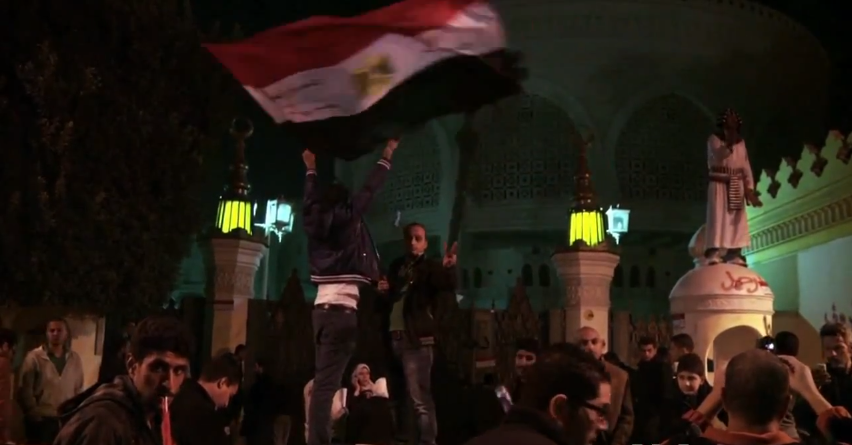
There is little doubt that Mursi had lost his legitimacy because of his own actions and the actions of Muslim Brotherhood. The key problem with the Brotherhood was its belief that winning elections gave them a right to do whatever they wanted for the next five years, irrespective of whether the bulk of people agreed with them or not. It is worth noting that in the first round of presidential elections, Mursi got only 24.8% of the votes among the 13 candidates, with Ahmed Shafiq (old Mubarakist) and Hamadeen Sabahi (Nasserist) close behind with 23.7% and 20.7% votes respectively. If Ahmed Shafiq had not received more votes than Sabahi, and most believe that this was rigged by the security apparatus, then Mursi may not have won against Sabahi. With the contest between Shafiq and Mursi, major sections that had supported the uprising against Mubarak, swung behind Mursi, leading to his narrow win over Shaifiq.
It is this kind of divided Egypt that Mursi was leading as president. There was the Muslim Brotherhood, the most organised of the political forces, the feloul (the Mubarak remnants of the old regime) solidly entrenched within the Egyptian state apparatus and a variety of secular, and left forces, with the youth movements among them having the largest mobilisation capacity. It is Mursi and Muslim Brotherhood’s disdain for alliances and coalitions that isolated them, even from fellow Islamists such as the Al Nour party.
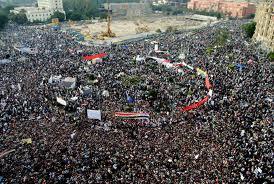
A number of commentators from the anti Mursi side as well as the pro Mursi side have been pointing out that the US has been on one side or the other. There is little doubt that the Mursi camp had tacit US support as does the Egyptian military and some sections of the secular opposition. It clearly indicates that the US and the NATO will be with whichever side comes out on top. The quick endorsement of the military action by the monarchist regimes in the Arab world – the Saudi Arabian and the Gulf monarchies – shows the complex nature of Arab politics today.
The problem with Tamarod movement that sprung up against Mursi is that instead asking Mursi to go, their mobilisation was specifically geared to ask the armed forces to dismiss him. Tamarod have emerged as the principal backers of Al Sisi, and had endorsed his call to come out in the streets and support the action by the armed forces against Mursi’s supporters.
The political scenario is further complicated by what is happening in Sinai, where insurgent forces aligned to Al Qaeda have attacked the Egyptian armed forces. The Army’s action has been not only to take harsh action against the insurgents but also close to the tunnels that provide the life blood to Gaza; 80% of these tunnels are now closed. Mursi’s supporters on the other hand have virtually endorsed the Sinai insurgency stating that only the restoration of Mursi can reign in the attack.
Disclaimer: The views expressed here are the author's personal views, and do not necessarily represent the views of Newsclick
Get the latest reports & analysis with people's perspective on Protests, movements & deep analytical videos, discussions of the current affairs in your Telegram app. Subscribe to NewsClick's Telegram channel & get Real-Time updates on stories, as they get published on our website.










